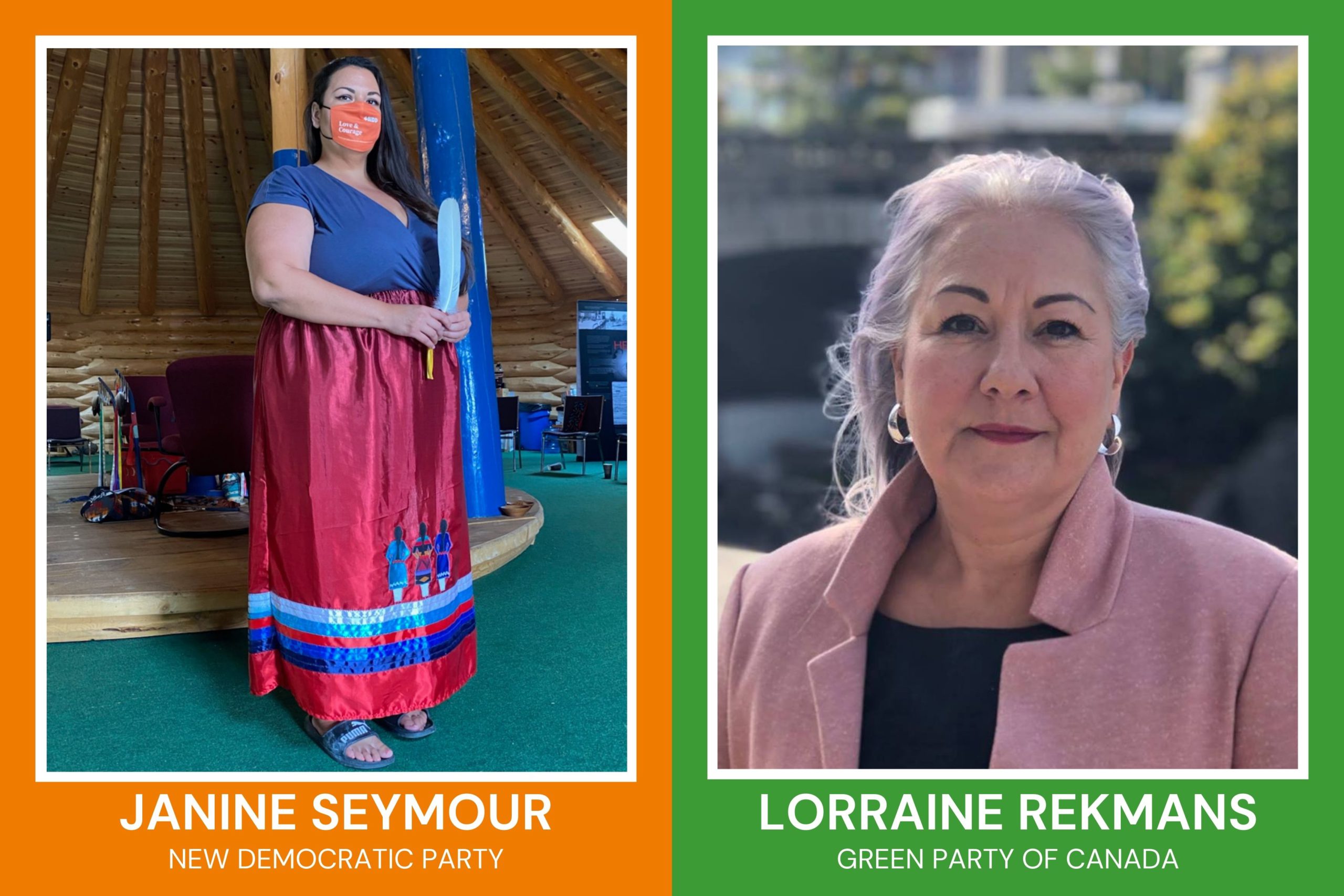The upcoming federal election has a record-breaking number of Indigenous candidates running, with 77 candidates self-identifying as Indigenous, according to The Canadian Press.
Following a summer of tragic discoveries made at former residential schools sites, growing environmental conerns on Indigenous land and the ongoing genocide of Missing and Murdered Indigenous Women, reconcliation now stands as a major divisive platform for all parties.
Kenora riding New Democratic Party (NDP) Indigenous candidate Janine Seymour notes the significance of this election comes following two years riddled by anxiety, uncertainty, and anger.
“The tragedy of the residential school system has horrified people who were, luckily, never directly affected. To me, my community, Indigenous people everywhere in Canada, the horror has never ceased: the wound is still fresh,” she says.
“The increase in the number of Indigenous candidates reflects what is really happening in Canada; the frustration and disappointment with the status quo, 150 years of government-driven racism, and the struggle to feed and house ourselves has motivated marginalized people to stand up and speak out.” Seymour says this increase in Indigenous presence in the federal election demonstrates the purpose of democracy.
Lorraine Rekmans, candidate for the Green Party of Canada in Leeds Grenville Thousand Islands and Rideau Lakes riding, and member of Serpent River First Nation, says that despite being a pertinent national issue, Indigenous rights is seldom meaningfully discussed amongst parties.
“It is up to us as Indigenous people to bring our voices to the political arena ourselves. We must stand up and advocate for our rights, otherwise they are lost in the mainstream dialogue.”
Rekmans states that the Green Party is committed to implementing recommendations made in the Royal Commission on Aboriginal People and for the Truth and Reconciliation Report. “We have a policy motion to repeal the racist, sexist, and oppressive Indian Act, but we can only do this in equitable partnership with nations,” she adds.
The Federal Leaders Debate, which took place on September 9, saw reconciliation as one of its main themes for the evening. Prime Minister and Libreal Party Leader Justin Trudeau began the segment stating that Canada has failed its relationship with Indigenous Peoples over the past 150 years, with the leaders then going on to lay out their plans for Indigenous reconciliation, notably with Annamie Paul, Green Party of Canada leader, calling for more diversity and Indigenous-led officials in Canadian politics.
“We need to build partnerships, we need to restore trust. That trust is eroded when you make commitments on safe drinking water on reserves, when you make commitments on the calls to action in the Truth and Reconciliation report and have no plan to fulfill them,” said Conservative Party leader Erin O’Toole in last Monday’s debate.
On the topic of fishing rights and treaties, NDP leader Jagmeet Singh said: “We need to respect Indigenous treaties, land and rights — that’s a fundamental step towards walking the path of reconciliation in a real meaningful way.” He carries on to say that a reformation of the Royal Canadian Mounted Police (RCMP) and policing in Indigenous communities must be seen through at the federal level.
Seymour says the NDP is committed to Indigenous-led healing and expanding mental health care for northern, remote parts of the country. “The only way this country can heal is through our stories; being heard, and sharing our voices,” she says. “Once elected to office, I will insist on working collaboratively across party lines to effect real change. So much talent is wasted by bipartisan, knee-jerk dismissal of other people’s ideas.”
She goes on to say the two major parties in Canada have consistently failed to make progress in reconciliation, and have chosen “not to spend their political capital on Indigenous issues.”
Rekmans states that Canada’s constitution is foundational to governance and no room is therefore made to accommodate Indigenous nationhood status. “The constitution must be amended if we are to move forward in peaceful co-existence,” states Rekmans.
“Readers should know that there can be no reconciliation without political will,” she says.




